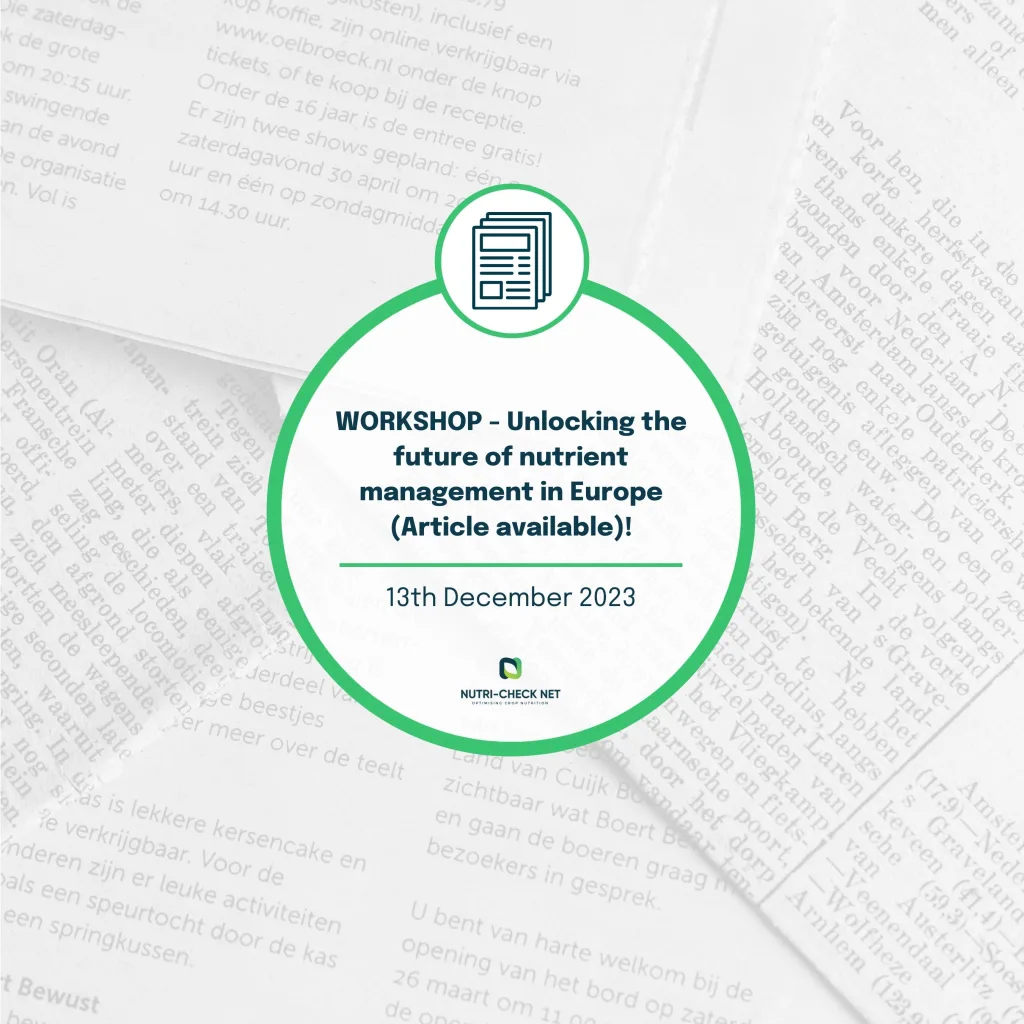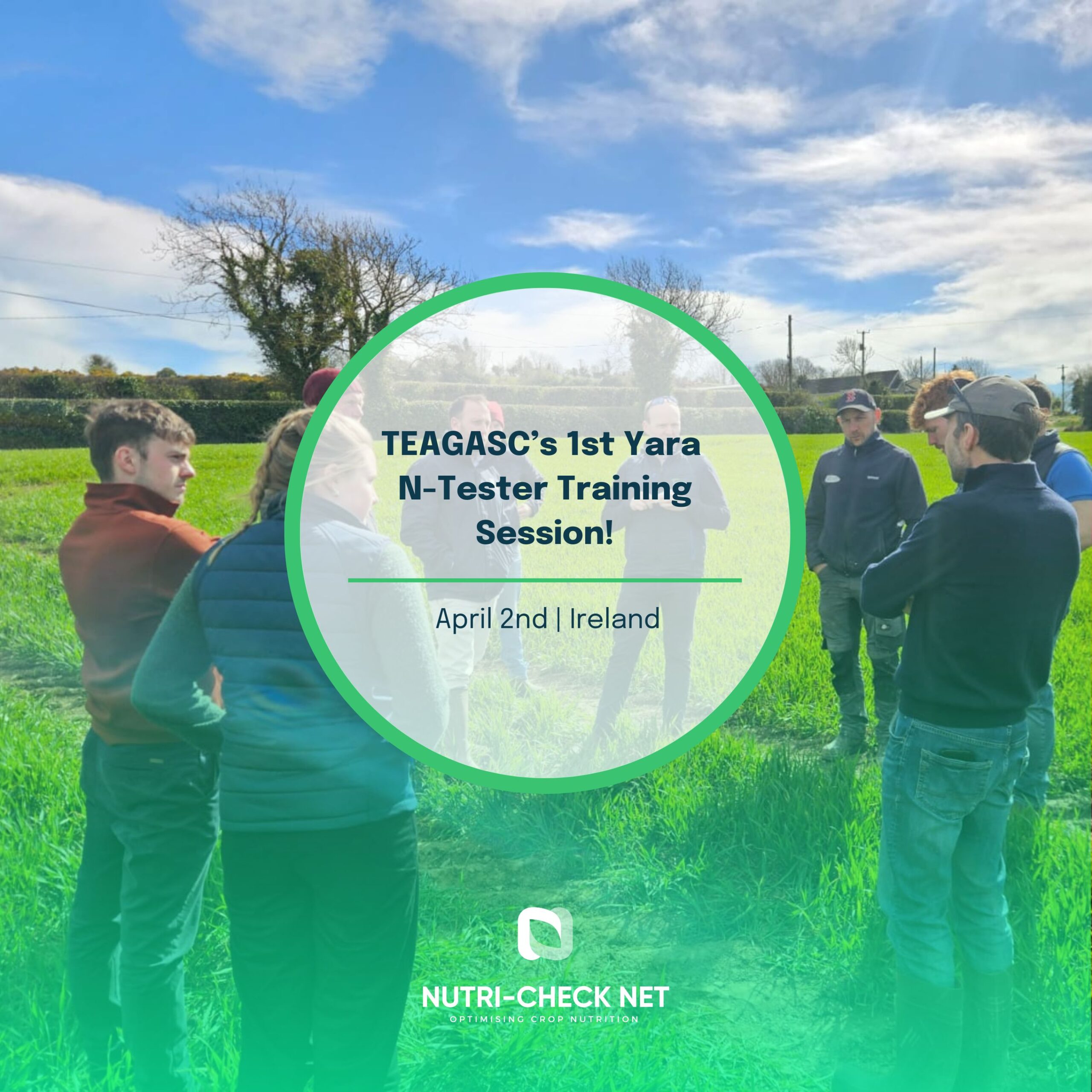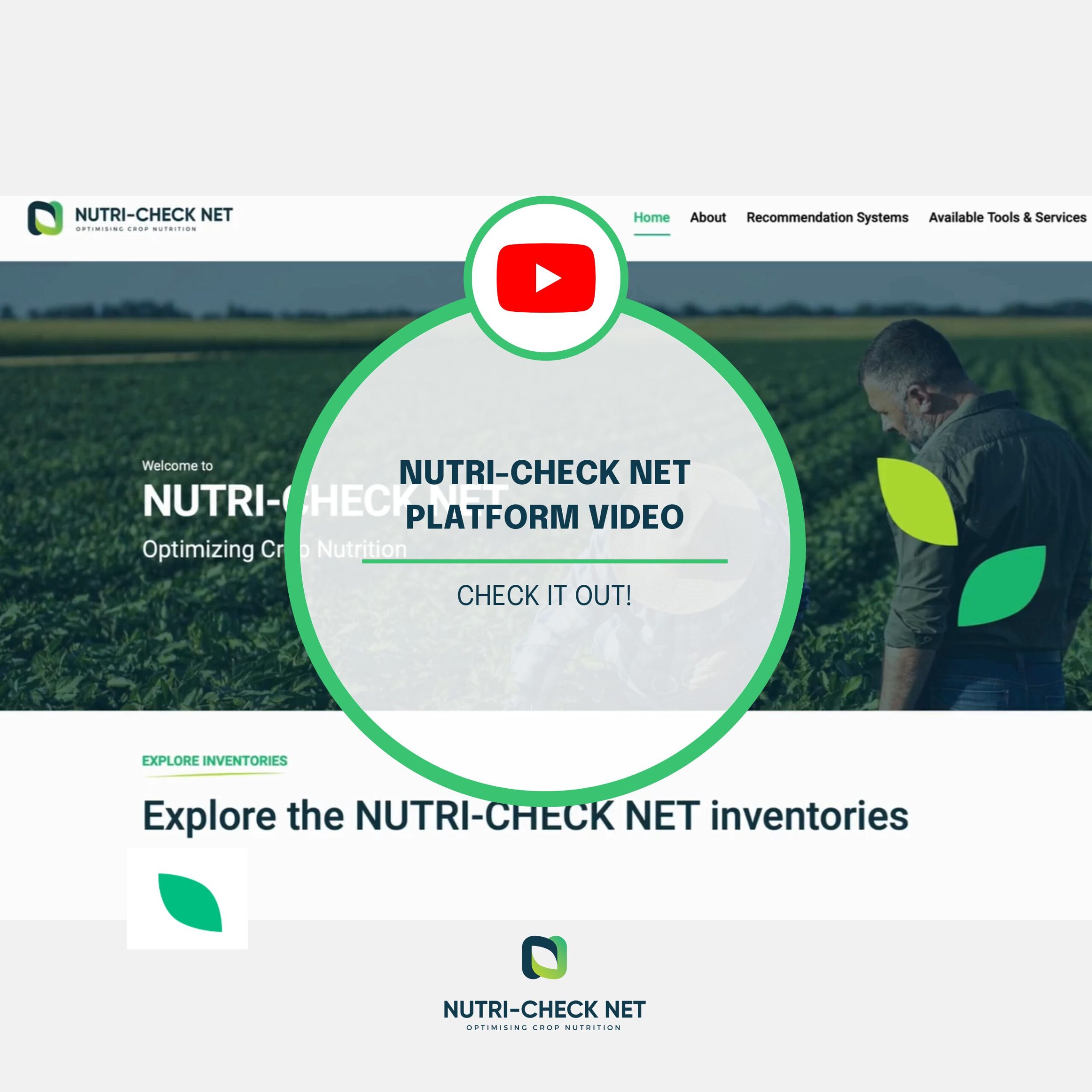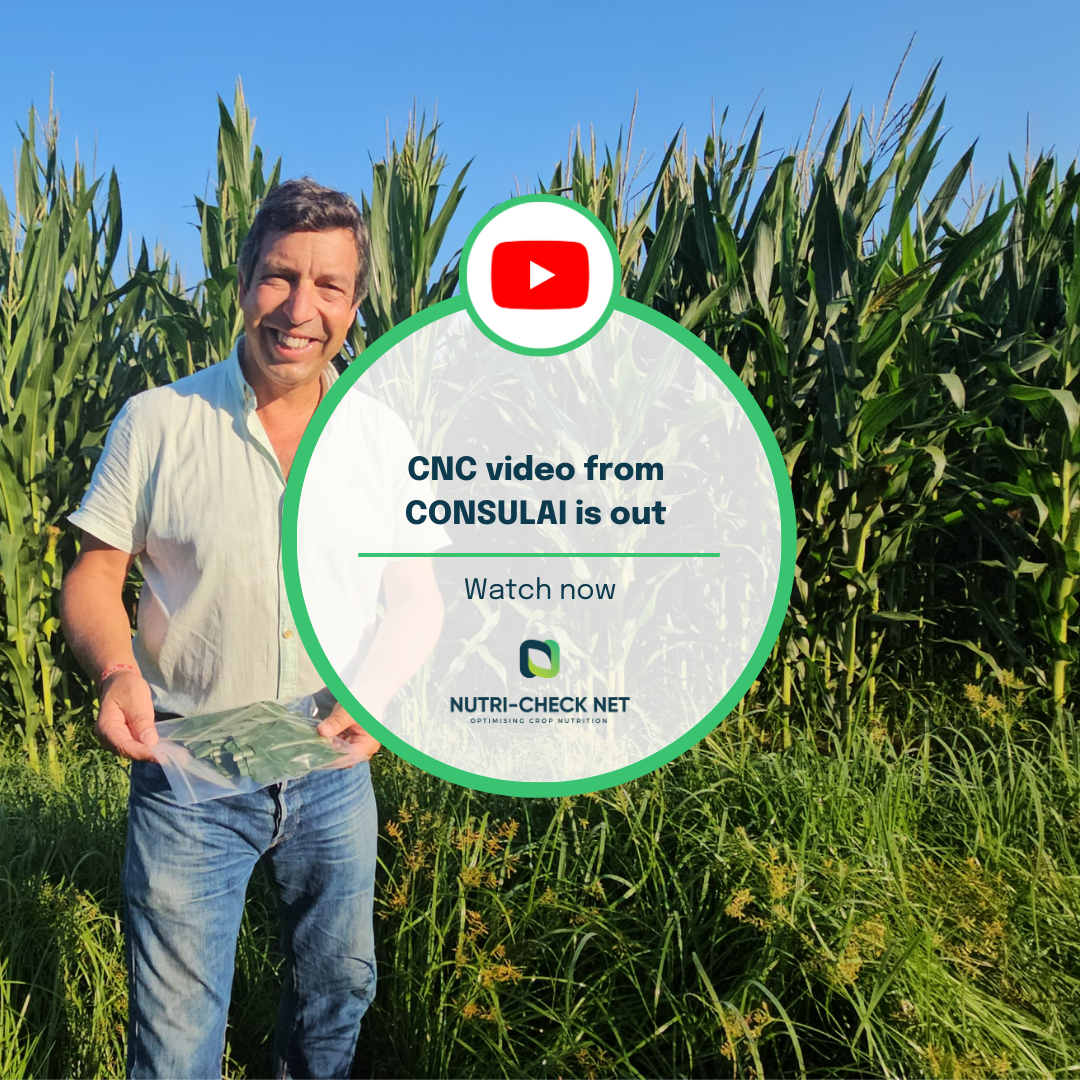On the 13th of December of 2023, a Network Meeting of NUTRI-CHECK NET took place in a workshop format for NEG members.
At this meeting, a wide range of topics related with the project were presented by the project’s partners and it was promoted group discussion sessions about the tools that contribute to the precision of crops fertilisation used in each project’s country, where the meeting’s participants had opportunity to share the ones from their country.
The meeting started with a brief presentation about NUTRI-CHECK NET project, their objectives and methodology, made by the project’s coordinator, Sarah Kendall.
The second presentation focused on the results obtained on the stakeholders’ survey with the aim of identifying the primary needs and drivers for farmers to increase the precision of crop nutrition. The relevant stakeholders considered in this task were the farmers and land managers, farmer advisors, agronomists, researchers, policy makers, education services, industry, agri-contractors, finance providers and consumers. The stakeholder’s engagement was made through an on-line survey, interviews to the NEG members and workshops with the CNCs, and the end it was obtained a total of 972 stakeholders engaged. The main conclusions retrieved from this tasks were that production and economic drivers motivate farms to engage with crop nutrition; data and information is collected on farms and some farms are using tools and technologies to help make crop nutrition de decisions, but 66% perceive level of accuracy, of the crop nutrition approach currently used, be moderate and 17% poor; many challenges and barriers to adoption of tools and technologies were identified (awareness, education, low income, access to finance, advice). The key stakeholders, including the NEGs will be further engaged to help overcome these challenges and barriers and to develop solutions for farmers.
The third presentation was about digital tools for nutrient management for the European context. NUTRI-CHECK NET aims facilitate the knowledge transfer to farmers regarding tools and technologies (T&T) that work and add values to countries that are not currently implementing them. To this end, in the scope of the project, it was made an inventory of T&T that are currently used in the partner’s countries with the objective of selecting 50 of those to be evaluate by experts and farmers. Most of the T&T identified are based on the nutrient requirements (65%), and in term of the level of detail, most T&T have work with field scale (55%). This meeting’s topic finalised with the presentation of five of the T&T identified, namely, TIPSTAR, NMP Online, Farmmasps, Datafarming, and Yara Grain Analysis.
The fourth topic discussed focused on crop nutrition checking strategy and the importance of soil and crop measurements and checking for the nutrition management. To implement this type of strategy it is necessary to consider the inputs and outputs (products) and be aware of most processes have losses (to air and water) and use storage (soil storage) for their inputs. Losses are usually very difficult to measure. So, if the losses and outputs are measured and storage is monitored it is possible to determine the losses that might have occurred. This management logic should be applied to crop nutrition to improve its precision.
The last topic addressed in the meeting was the Danish manure registration system, called eGylle. In fertilizers plan the utilized amount of nitrogen in applied manure is usually unprecised, and this system was designed to face this challenge by delivering precise information about manure composition and also precise and dynamic fertilizers plans. This system integrates three different decision support tools integrated in the same database: MarkOnline, CropManager, and FarmTracking. MarkOline is a tool to be used during all crop season by the introduction of field data by the user, helping the planification of crop nutrition; CropManager is a tool designed to help on far management; and FramTracking is a tractor tracking tool and registers what was applied to the field. In Denmark, 90% of the farm area is covered by the database and for many fields there is data available from the 30-40 years.
The meeting ended with a clear view of NUTRI-CHECK NET objectives and ambition for 2024!



